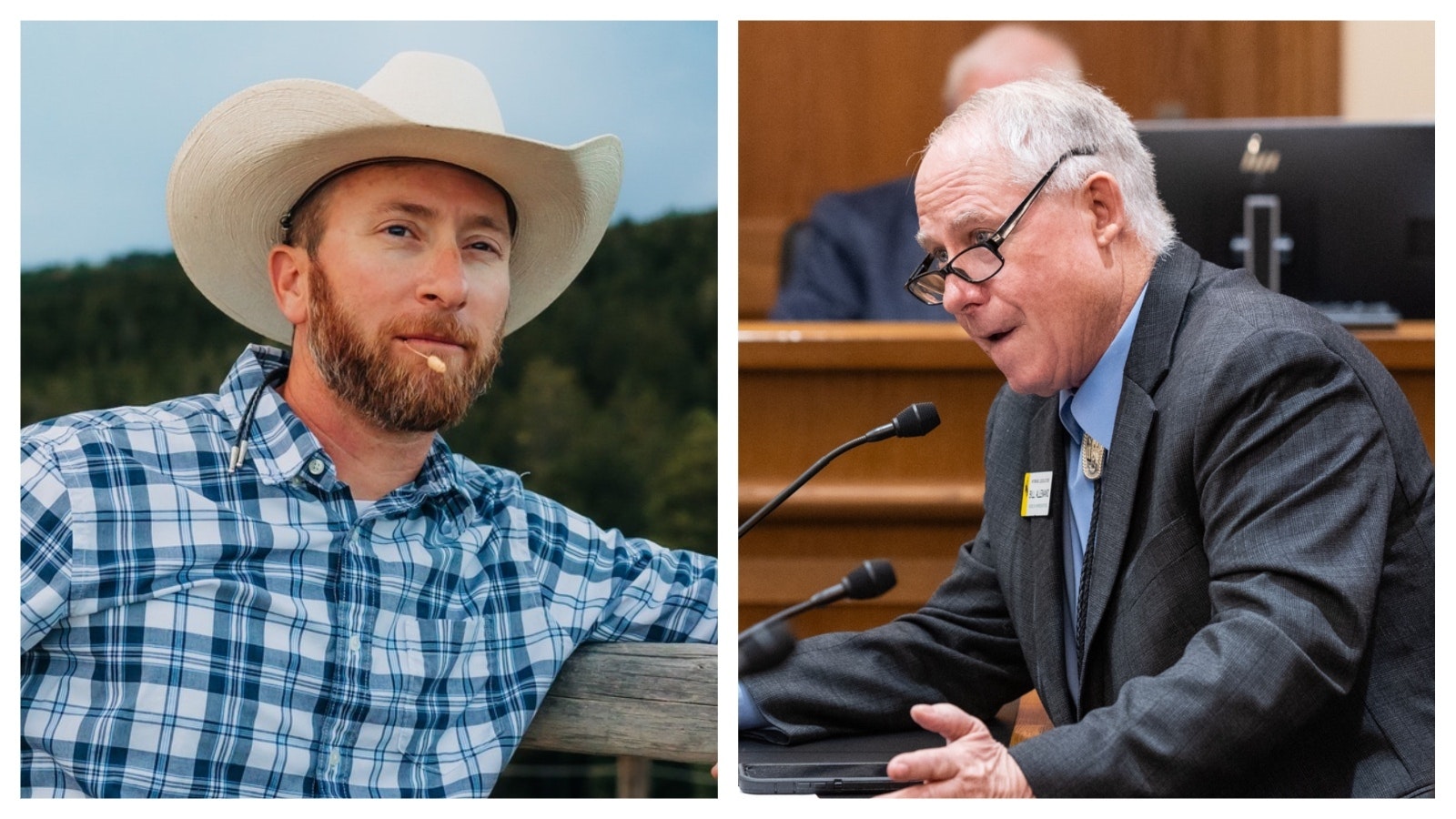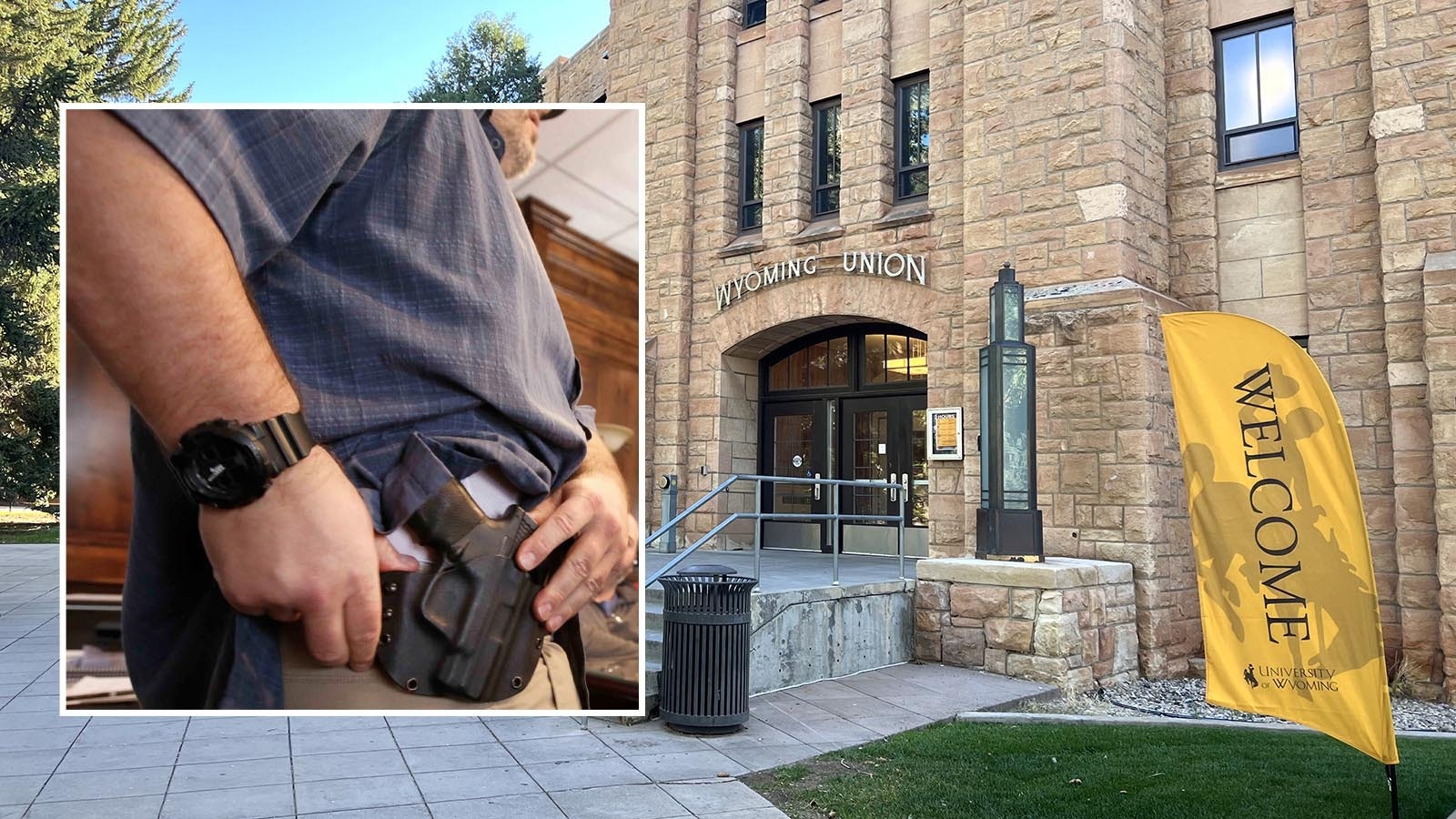Although the Joint Minerals Committee expressed interest in a bill that would have given public utilities liability protection from fire-related lawsuits if they create wildfire mitigation plans, the committee didn’t believe the bill was ready for consideration in the upcoming legislative session.
“A decent bill is not good enough,” said state Rep. Cyrus Western, R-Big Horn, during the committee’s Monday meeting. “We need a product that’s really well thought out.”
Most members of the committee felt too many discrepancies existed in the bill between what different utility companies and lawmakers had in mind for it, even though most said they support its underlying purpose.
The bill would have required all public utility companies in Wyoming to create wildfire mitigation plans to potentially lower litigation costs down the road. Its purpose was to lower costs for utility companies and their customers brought on by increasing insurance costs related to mitigating wildfires in recent years. It is the insurance companies that typically pay these costs.
“At the end of the day, everything always comes back to the rate payer, one way or another,” said Sen. Chris Rothfuss, D-Laramie. “The only interest I have is diminishing rate payer’s costs.”
Utility Companies Liked It
All of the utility companies that spoke before the committee supported the bill, with many describing it as a compromise struck between companies and their customers.
A working group made up by representatives of utility companies and members of the Public Services Commission helped craft the legislation.
Thom Carter, vice president of governmental affairs for Rocky Mountain Power, said it would protect customers and public utility companies in Wyoming by providing liability protections for the companies against billion-dollar lawsuits and specifically certain punitive damages.
A number of these lawsuits have popped up on the West Coast as a result of rampant wildfire activity in that region. PacifiCorp, the parent company of Rocky Mountain Power, is one of the companies being sued.
The lobbyists who testified Monday argued that these lawsuits caused large electricity rate increases for customers.
Katharine Wilkenson of the American Property Casualty Insurance Association however, said it also would establish a higher bar for residents to receive wildfire compensation from a utility than what currently exists in law.
Carter and David Bush, governmental affairs manager for Black Hills Energy, said wildfire mitigation has evolved into becoming their utility company’s top concern.
“This is about creating an opportunity for the state of Wyoming, the people of Wyoming, the ratepayers of Wyoming, the land of Wyoming, to have as much safety as they possibly can around this,” Carter said.
These plans would have to be submitted to the Public Service Commission for a company to receive liability protection. Any public utility owned by a city or town in Wyoming was exempted from the bill.
Amendments suggested by the Office of the Consumer Advocate would have made submitting wildfire mitigation plans to the Public Service Commission mandatory.
Sean Taylor, executive director of the Wyoming Rural Electric Association, said accepting the mandatory submission of wildfire mitigation plans was a worthwhile compromise to receive the liability protection the bill affords organizations like his.

Shield Law
The proposed law would have shielded public utility companies from potential legal repercussions involving a wildfire by stating that the creation of a wildfire mitigation plan serves as “a reasonable and prudent preparation for, and mitigation of, wildfire risk.”
The commission, not a jury, would be in charge of determining what’s unreasonable or not, which Sarah Kellogg of the Wyoming Trial Lawyers Association and Rep. Martha Lawley, R-Worland, an attorney, found concerning.
Mary Throne, chairman of the Public Services Commission, said there should be no concerns about this aspect as her board offers an extensive public comment process.
“Parties can intervene, they routinely do,” she said. “It’s an open process, everyone can jump in.”
Utility companies also would have been protected from liability under the proposed law if they were blocked from providing vegetation management or fire mitigation work by a private property owner.
The bill would have prevented the public from taking civil action against a public utility company more than four years after the ignition of a wildfire. It also said people or their families can’t recover noneconomic compensation related to damage from a wildfire unless they received bodily injury or died in the wildfire event.
For the purpose of calculating damages, a plaintiff only could have received compensation for the lesser value of the value of restoring the property to its pre-wildfire condition or the difference between the productive value of the property immediately before the wildfire and the productive value of the property immediately after the wildfire.
A person only could have collected wildfire damages if their electric utility failed to substantially comply with an approved wildfire mitigation plan, and that failure was the actual and proximate cause of their damages.
Recovery Costs
The bill also allowed utility companies whose rates are regulated by the commission to seek recovery for the costs associated with implementing their mitigation plans through rate cases or other separate filings.
Carter lobbied for this part of the bill, saying it would encourage investment in the public utility companies and thereby potentially raise customer costs.
Rep. Scott Heiner, R-Green River, expressed concern that the cost to develop mitigation plans will be paid through rate increases put on consumers.
In 2020, the state of Utah passed legislation similar to the bill the committee considered on Monday. Since that time, Rocky Mountain Power announced it would spend $2.5 billion across six states including Wyoming on its wildfire mitigation plan.
The Wyoming legislation differs from Utah’s in that there is no presumption of recovery for wildfire losses.
Carter said customer rates have not increased or decreased in Utah due to the required production of mitigation plans, which drew Rothfuss to then question the purpose of the bill.
“If we don’t see a reduction in rates in Utah relative to the other states due to their actions, I see no motivation to passing this legislation,” he said.
Carter responded that threats of potential lawsuits seem to have reduced because of the Utah legislation. He cited internal studies showing that this is correlated to lower costs for customers.
“It sends a message to the insurance writers, to the fiscal market, to all those investor and insurance agency that there are protections available to the utility, to the ratepayers, to the communities that are part of the co-op industry that there’s a land in the sand that the state has provided,” he said.
That didn’t convince Rothfuss, who said the bill still lacked a definitive guarantee of a reduction in customer’s costs.
Leo Wolfson can be reached at leo@cowboystatedaily.com.





